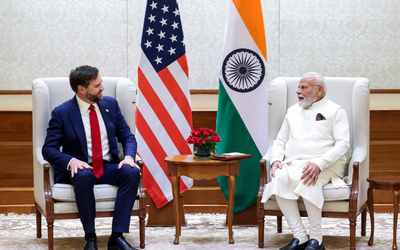
Nepal does not have specific Contempt of Court Act as it exists in other countries, especially India and UK, which are mostly quoted in this part of the world. An attempt, however, was unsuccessfully made to adopt contempt of court law by the last transitional parliament. The elements and spirit of such laws that are practiced elsewhere and found in Contempt of Court Act 1981 of England and in the Indian Contempt of Court Act 1971, are well reflected in the Nepalese Constitution and laws. The history of Nepalese court jurisprudence indicates sufficient growth of ‘contempt’ related case laws comparable to western civil and criminal contempt jurisprudence that are required to strengthen hands of the court system by preventing obstruction of justice and undue attacks on the judiciary so that court’s dignity, public respect, effectiveness, independence and eventually the rule of law are maintained. Hence, the skeletal constitutional provisions and subsequent laws of Nepal are, perhaps, considered enough to tackle the ever controversial contempt of court issue.
Nepal’s Supreme Court is very powerful constitutionally equipped with the ‘final authority of interpreting Constitution and laws and obliges all, individuals and institutions in Nepal, to comply with its orders and decisions; and it is the ultimate court of record invested with powers to initiate and impose punishments on contempt of court cases and use the powerful tools of judicial review for enforcement of fundamental human rights and declare any laws ultra vires the Constitution (Articles 46, 126, 127, 128, 133, 137).’
Article 128 (4) states: “All must abide by any interpretation of the Constitution or a law made by or any legal principle laid by the Supreme Court in the course of trying lawsuit. If anyone makes obstruction in the dispensation of justice by, or disregard any order or judgment handed down by, it or any of its subordinate courts, the Supreme Court may, in accordance with law, initiate proceedings and impose punishment for contempt.” This provision read together with Section 17 (1) of the Judicial Administration Act 2016 and the Clause 59 of the Supreme Court Rules 2017, constitute contempt of court laws of Nepal although extensive and wider interpretations, comparable to any international standard, have been made by the Supreme Court in several leading cases covering all aspects of contempt. If we look into earlier Constitutions, a general language used in the texts gives the impression that wider scope of definition on contempt issue has been allowed for the Supreme Court. A more specific language used in the present text in no way limits the pervasive nature of the contempt issue that has so far been explained in earlier leading decisions, as may be seen in disobedience of court orders or scandalization of courts through direct means or indirect means. A very sensitive and critical issue that always draws the attention of the public is the conflict between ‘freedom of speech and expression’ (press and publication freedom) and ‘contempt of court’. Starting from the Motherland case to the cases of Senior Advocate Kusum Shrestha, Senior Advocate Ganesh Raj Sharma and even against Supreme Court Justice Bashudev Sharma, the Supreme Court’s position has been found firm and imposition of low penalty or apology before the court have been considered to avoid harsh decisions. Supreme Court Justice Biswanath Upadhyaya has thoroughly reviewed the applicability of contempt of court laws in the Supreme Court vs. Lok Bahadur Bistha (2028 BS,SC Full Bench), in which he disagreed to a liberal approach taken by the court despite a clear attempt of apology has been demonstrated in writing. Disrespect against the court was recorded in this case by the party who asked the Supreme Court to constitute a bench with a particular Justice.
Recently there has been reports of a number of cases in India that have put the Supreme Court Justices into controversies, including the press conferences of sitting justices against the Chief Justice’s administrative role in discriminatory allocation of cases while constituting benches for hearing. Punishment to a Calcutta High Court Judge Mr. Karman on contempt was equally controversial as Judge Karman was prompted to drag the Supreme Court Justice to CBI investigation. On November 14, 2017, a three-judge bench of the Supreme Court dismissed the writ petition filed by Kamini Jaiswal, which sought an investigation into allegation of judicial corruption. Eventually, all cases starting from Namboodaripad Case were resolved amicably through an approach of harmonization between apology and punishment in contempt cases. Ultimately, court’s dignity and respect was at the top priority because justice otherwise would be defeated.
In Nepal also, as has been recently experienced by the Supreme Court through public speeches, serious allegations and public protests against the Chief Justice, the contempt issue has always been controversial in almost all democratic justice delivery systems. Hitherto inexperienced in Nepal, utmost tolerance has been exhibited by the Nepalese Supreme Court and the legal community against the amount and extreme nature of verbal attacks and the critical news reports emanating from a medical doctor as a crusade against judicial corruption. Since it is not proper for any reasonable person to make any remarks influencing a case sub judice, court itself is expected to display wisdom, tolerance and courage in its judgment on the pending contempt of court cases. It can nevertheless be said that ‘contempt of court’ is a very powerful, extraordinary tool in the hands of independent and democratic judiciary; powerful because the courts are not restricted by normal due process (natural justice) principles while initiating proceedings suo motu or even penalizing the offenders on the spot. This does not however mean that courts and judges are above and immune from constructive criticism.
Before we venture to examine Contempt of Court issue, which crops up coming in all democratic societies, it may be advised to the crusaders of human rights to once go through a first historic case of contempt that is still flashing in the mind of rule of law advocates in USA and the democratic world. The case of United States v. Shipp (1906) is a case symbolizing the victory of the rule of law against the then brutal society. In this case, a black American Ed Johnson, charged of rape, and was sentenced to death by court dominated by whites in violation of due process of criminal justice. But before his case was unusually stayed by the Supreme Court at the appeal preventing execution of death penalty, the jail was forcefully raided by a mob and he was taken out of prison and lynched to death in presence of Sheriff and Jail Officers. In this, case, there were nine defendants, all charged with contempt of court—contempt of the Supreme Court, that is. The U.S. attorney general had filed the charges against them directly with the court, thus giving it original jurisdiction in the matter. The petition alleged that the defendants and other people engaged in actions “with the intent to show their contempt and disregard for the orders of this honourable court … and for the purpose of preventing Ed Johnson from exercising and enjoying a right secured to him by the Constitution and laws of the United States.”
It was a full-blown trial. There were special prosecutors, dozens of witnesses and a special master assigned to take the evidence. The trial record exceeded 2,200 pages. Each side was given a full day of oral argument before the justices.
Chief Justice Melville W. Fuller, who normally encouraged his colleagues to write the court’s opinions, decided that the importance of this case demanded that he take on the responsibility. Before reading the opinion that accompanied their verdict, Fuller—in his typically soft, almost inaudible voice —noted to a packed courtroom that the Supreme Court had entered new territory for which there was no precedent.
A hundred years later, United States v. Shipp has faded into the haze of precedent and history, but legal historians say its impact remains undiminished. Shipp has been cited as the genesis of federal habeas corpus actions in state criminal cases. This contempt of court case, representing disobedience of the Supreme Court Order, was a pivotal turning point in asserting the importance of the rule of law and the need for an independent judiciary.
But despite its legal importance, Shipp provided the climax to an amazing story involving a cast of memorable characters—perhaps most of all two unknown African-American lawyers who, because of their tenacity and bravery, changed the U.S. justice system. As a reward for their efforts, those two lawyers saw their client murdered, their practices destroyed, their families threatened and their homes burned to the ground. Fearing for their lives, they never returned to their hometown after attending the Supreme Court hearing in Washington, D.C.
Nepal should learn from the history of the American Supreme Court that took hundred years for Americans themselves to learn. Unless court’s sanctity has been preserved and its door remains open for all, justice will be denied. The contempt of court power has to be issued in exceptional situation but with a motive to maintain court’s dignity; no undue attempt comparable to mob justice must not be allowed to prevail. The present day society is a 21st Century modern society and any crusaders who raise voice in public to fight any cause, must understand and appreciate the sensitivity of ‘unarmed judiciary’ and respect due process of law. It is in fact the legal community itself, i.e., the Courts and Bar, and the academicians, who must come together and work hand in had to preserve the sanctity of the justice system. Politicians, they need courts when their political powers are at jeopardy. It is the citizens who should be the vanguard of real justice. But the instrument they use must be ‘due process of law’. Contempt of court law is one of the tools to promote due process of law. It should not be abused, however.
- The Last Opportunity: The Imperative for Peace and Transitional Justice in Nepal
- Mar 26, 2025
- Revisiting Transitional Justice (Reflections In The Shadow Of History)
- Jan 29, 2025
- Summit For Democracy And Focus On Human Rights
- Jan 22, 2022
- Constitutionality Of Parliament Dissolution
- Jan 12, 2021
- Constitutional Puzzle
- Dec 22, 2017
















